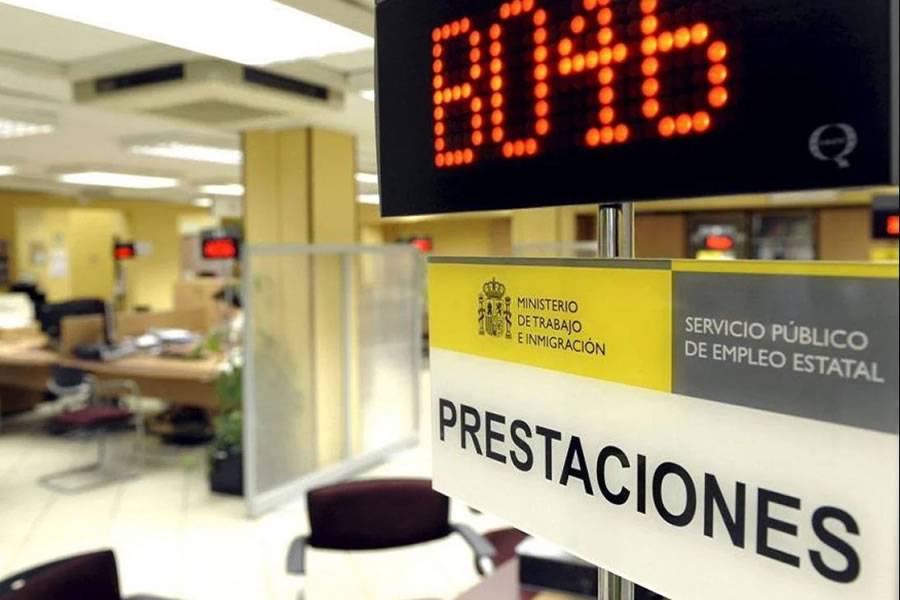SEPE tightens regulations on unemployment benefits that can suspend payments
- 07-01-2025
- Business
- Canarian Weekly
- Photo Credit: SEPE
On 1st November 2024, Spain’s Public Employment Service (SEPE) introduced a significant change for unemployment benefit recipients, who are now required to file an income tax return regardless of their income level, which is a change from previous rules, which only mandated tax declarations for those exceeding specific income thresholds.
The new requirement, which comes into full effect during the 2025 income tax filing campaign, stipulates that failure to comply could result in the immediate suspension of unemployment benefits and possible financial penalties.
End of Exemptions for Low-Income Recipients
Previously, unemployment benefit recipients were only obligated to declare their income if it surpassed certain thresholds:
- €22,000 for a single income source.
- €15,000 if there were multiple income sources, with one exceeding €1,500 (increased to €2,500 as of January 2024).
Under the new decree, all beneficiaries, including those receiving the basic subsidy of €480 per month, must file a tax return. The government’s stated aim is to standardise criteria and ensure closer scrutiny of public resource allocation.
Stricter Consequences for Non-Compliance
The updated rules specify that failing to submit a tax return (Declaracion de Renta) within the designated time frame will result in the automatic suspension of benefits. Additionally, the Tax Agency (Hacienda) may impose fines for non-compliance. This stricter oversight represents a shift towards tighter control of social assistance compared to prior regulations.
For unemployment benefit recipients unfamiliar with tax procedures, the new requirement poses added challenges. Any delays or errors in completing the process could lead to the loss of payments, impacting some of Spain’s most vulnerable people.
Other Changes in the Decree
The decree, passed in May 2024, includes additional reforms to the unemployment protection system:
- An increase in the unemployment subsidy to 85% of the Public Indicator of Income for Multiple Effects (IPREM).
- The ability to combine unemployment benefits with a salary.
- Inclusion of special categories of beneficiaries facing unique circumstances.
These measures have elicited mixed reactions. Labour unions such as CCOO and UGT have expressed support, seeing the changes as beneficial to workers, while employer organisations like CEOE and Cepyme argue that they might discourage people from looking for work.
Government's Justification: Fraud Prevention and Resource Efficiency
The Ministry of Finance defends the reform as a necessary step to enhance the oversight of unemployment benefits. By requiring tax returns, authorities can more effectively verify beneficiaries’ income levels, detect fraud, and ensure benefits are directed to those genuinely in need.
This approach also facilitates more precise application of tax deductions and adjustments, contributing to the sustainability of the social protection system.
Preparing for the 2025 Tax Campaign
To avoid disruptions to unemployment benefits, recipients are advised to prepare thoroughly for the upcoming 2025 tax filing campaign. Key recommendations include:
- Gathering necessary documentation, such as SEPE benefit certificates.
- Familiarising themselves with the campaign timeline, typically running from April to June.
- Seeking professional tax advice if needed.
- Using online tools like the Renta Web system to streamline the filing process.
The changes signal a stricter framework for unemployment benefits in Spain, including the Canary Islands, emphasising accountability and financial transparency. While the government views the reforms as a step towards fairness and sustainability, they may also present new challenges for those navigating an already complex system.
Other articles that may interest you...
Trending
Most Read Articles
Featured Videos
TributoFest: Michael Buble promo 14.02.2026
- 30-01-2026
TEAs 2025 Highlights
- 17-11-2025




























































